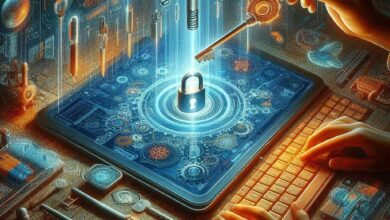Technology is an ever-evolving force that shapes the way we live, work, and interact with the world. The term “technologytechnology” might seem repetitive at first glance, but it can serve as a conceptual exploration of how intertwines with itself, innovates, and evolves to create a better future. This article delves into the depths of technological progress, its dual nature, and its undeniable influence on society.
The Evolution of Technology

Since the dawn of human civilization, technology has been a catalyst for progress. Early tools, such as stone implements and fire, marked the beginning of our technological journey. Over centuries, innovations like the wheel, printing press, and steam engine revolutionized human life, paving the way for modern industrial and digital advancements.
“Technologytechnology” encapsulates the self-reinforcing nature of innovation. Each technological breakthrough often builds on previous ones, creating a cycle of progress. For instance, the invention of the internet in the late 20th century didn’t occur in isolation; it was the result of decades of research in computing, telecommunications, and data transfer. Similarly, artificial intelligence (AI) today benefits from advancements in machine learning, quantum computing, and big data analytics.
The Dual Nature of Technology
Technology is often viewed as a double-edged sword. On one hand, it empowers humanity by providing solutions to complex problems, improving healthcare, and enhancing productivity. On the other, it raises ethical dilemmas, environmental concerns, and risks related to privacy and security.
For example, social media platforms have revolutionized communication, making it easier to connect with loved ones and share information globally. However, they also contribute to misinformation, cyberbullying, and social isolation. Similarly, while automation boosts efficiency in industries, it also displaces jobs, creating socio-economic challenges.
This duality underscores the importance of responsible innovation. Stakeholders, including governments, corporations, and individuals, must collaborate to harness benefits while mitigating its drawbacks.
The Interconnectivity of Technology
The phrase “” can also symbolize the interconnected nature of modern innovations. Today, no single exists in isolation. From smartphones that combine hardware, software, and internet connectivity to smart cities powered by IoT (Internet of Things) devices, modern solutions are a result of multiple technologies converging.
One notable example is the rise of autonomous vehicles. These rely on a combination of sensors, AI algorithms, machine learning, and GPS to navigate and make decisions. The seamless integration of these technologies is what makes autonomous driving a reality, showcasing how various innovations work together harmoniously.
The Role of Artificial Intelligence
Artificial intelligence (AI) is a prime example of “technologytechnology,” where drives further technological advancements. AI systems rely on vast amounts of data collected through technological devices like smartphones, cameras, and sensors. In turn, AI enhances the capabilities of these devices by enabling features such as facial recognition, voice assistants, and predictive analytics.
AI’s influence extends beyond consumer devices. In healthcare, AI-powered tools assist in diagnosing diseases, analyzing medical images, and developing personalized treatments. In finance, algorithms detect fraudulent transactions and predict market trends. This symbiotic relationship between AI and other technologies exemplifies the concept of “.”
The Role of Technology in Shaping Societal Norms
Technology does more than transform industries; it redefines societal norms and cultural practices. For instance, the advent of the internet has democratized information, enabling individuals from diverse backgrounds to access knowledge and share their perspectives.
However, this democratization comes with challenges. The spread of fake news and the erosion of privacy are byproducts of the same technological advancements that connect the world. Balancing openness with security is an ongoing challenge that highlights the complexities of technological progress.
Ethical Considerations in Technological Development
As technology evolves, so too must our understanding of its ethical implications. Questions about data ownership, surveillance, and algorithmic bias are increasingly relevant in today’s interconnected world. Who owns the data collected by smart devices? How do we ensure AI systems make fair and unbiased decisions?
These questions emphasize the need for ethical frameworks and regulations. Governments and organizations must establish guidelines to ensure serves humanity’s best interests. Simultaneously, education and public awareness are crucial in fostering a culture of responsible technology use.
The Future of Technology
Looking ahead, the future of is both exciting and uncertain. Emerging fields like quantum computing, biotechnology, and space exploration promise to unlock new possibilities. Quantum computers, for instance, could solve problems currently beyond the reach of classical computers, revolutionizing industries like cryptography and materials science.
At the same time, the rise of technologies like genetic editing and AI raises profound ethical and philosophical questions. What does it mean to be human in a world where machines can replicate human intelligence? How do we ensure these powerful tools are used for the collective good?
Conclusion
While it offers unparalleled opportunities for progress, it also demands careful consideration of its ethical, social, and environmental impacts. By fostering a culture of responsible innovation, we can harness the full potential of technology to build a more equitable and sustainable future for all.




